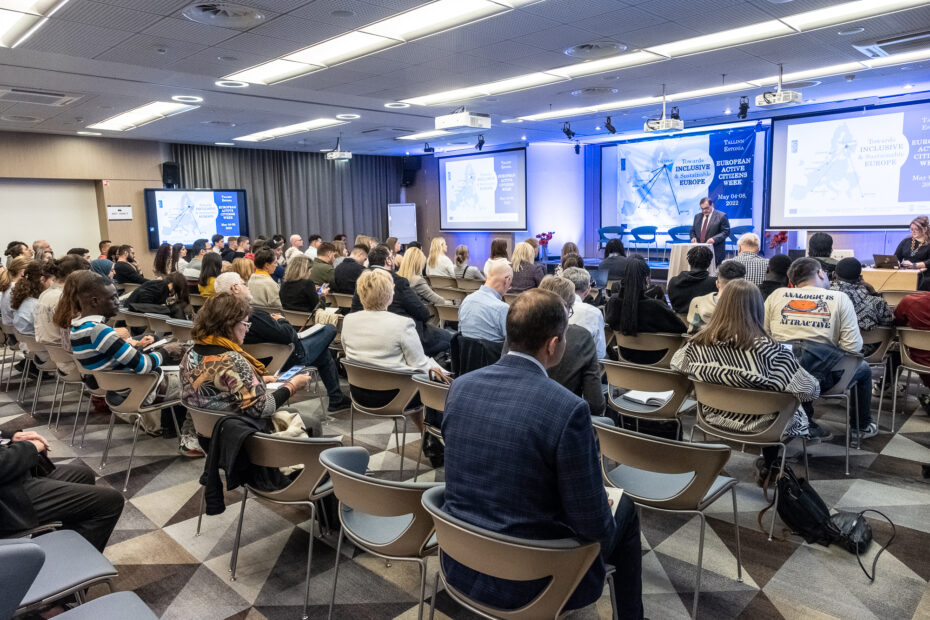The international conference “Inclusive and Sustainable Europe: way forward or step back?” was held in Tallinn, Estonia on the 5th of May 2022. The conference gathered experts and participants from more than 17 countries.
Experts, heads of organizations/institutions and NGOs, and guests began the day with an opening speech by Viviane Loonela, Head of the European Commission Delegation to Estonia.
The day continued with keynote speeches by many experts. Such topics as “Inclusive Society and Integration Policies from the Perspective of the State and Social Stakeholders in the Migration Crisis” (presentation by Anne-Ly Reimaa, Head of International Relations in Integration, Estonian Ministry of Culture), “Migration, Bilateral Integration and Inclusion: European Developments in Research and Policy” (presentation by Saara Pellander, Director of the Migration Institute of Finland) and “The role of civil society organizations in the integration of migrants and refugees in the European Union” (paper by Stefanos Vallianatos, NGO FOTOESSA, Greece) were touched upon.
Then the active panel discussions began. The first topic was “The EU and Civil Society response on migration crises by setting new action plan for Pact on migration and asylum and supporting migrant & minority communities in exercising their rights and responsibilities in society”. This discussion focused on the European Commission’s response to the current migration crisis as well as the experts’ opinions of the new Pact on Migration and Asylum. This document examines the European approach to managing migration and asylum, with the goal of implementing a comprehensive and sustainable policy, providing an effective long-term solution to the challenges of irregular migration, creating legal migration pathways, and better integrating refugees and other newcomers.
The second panel discussion with topic title “The Civil Society Dynamic on integration, inclusion and empowerment of vulnerable groups at national and European Level”. The crucial role that civil society plays in integrating and strengthening vulnerable groups (immigrants and societal minorities) at the national and European level was the topic of this conversation. How important local organizations play a crucial role in integrating immigrants in general and refugees in particular into the fabric of European society. The way in which we conceptualize the sociopolitical dynamics of immigrant settlement and integration in terms of the outcomes produced by urban governance structures or the ways in which civil society advances the needs of vulnerable groups by cooperating with institutional frameworks from the governmental or corporate world.
The focus of the last panel discussion “The barriers to integration and of effective steps to address them – within and beyond the labor market, social cohesion and civic participation at local and national level” was on the practical steps that must be taken in order to comprehend what the EU and national politicians/officials need to do in order to remove obstacles to immigrants’ and refugees’ integration into the labor market and educational system as well as to enhance vulnerable groups’ inclusion into social life as equal members of society. Experts will discuss best practices and their own perspectives on how to enable immigrants to participate in decision-making as a crucial aspect of civic engagement.
